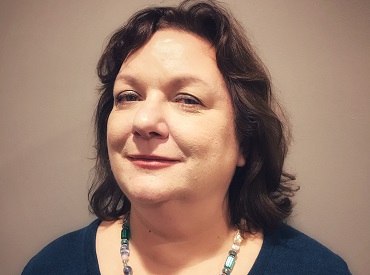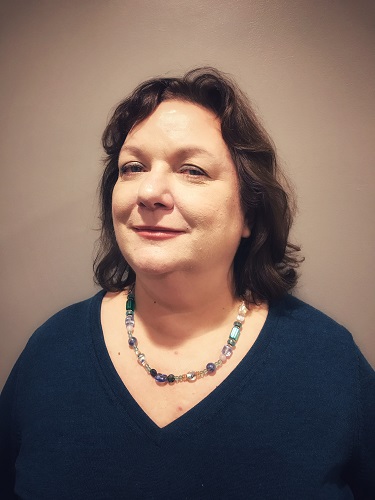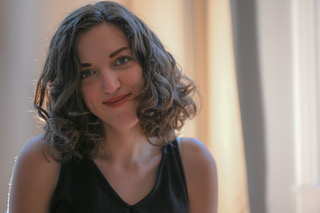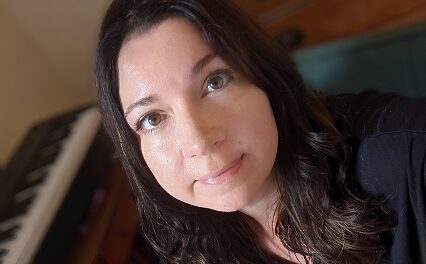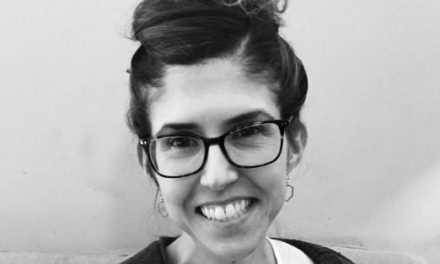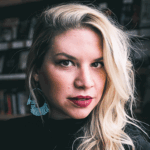Managing Editor Lisa Ampleman: During my MFA days, a poet in my cohort had just left a job in communications and research for a law firm, and she returned to it briefly after graduation as well. As you’ll read below, prose writer Elizabeth Bales Frank has spent time in the same sort of positions, including a stint as “poet laureate” of a law firm. As she said in a LitHub piece about that experience, “Both lawyers and poets manipulate language, but lawyers do it to win a conviction or a favorable deal. Poets do it to evoke the ephemeral—an emotion, a moment, a mood. Poets embrace nuance. Lawyers seek to crush it.” In this interview, she shares additional experiences and observations about the profession of legal researcher.
How would you describe what you do for your day job?
I work in the Research Services division of a major international law firm. My title is Competitive Intelligence Analyst. I research current and prospective clients, from big public companies to private financial firms. I also research emerging industries, such as renewables or the use of AI in health care. Another big component is looking at other firms and watching the law firm industry as a whole, seeing what trends are emerging and who is doing what.
What do you enjoy about that job?
I’ve had a lot of jobs in firms, and this is by far my favorite. I love the research and investigative aspect—I’m really hunting for a story with these assignments and deciding how best to convey key information to a time-pressed reader. Every assignment is a different challenge. My colleagues in the department are very savvy and skilled. We all have at least one master’s degree, and we collaborate really well together.
How, if at all, does your day job inform—or relate to—your writing life?
It’s made me much more efficient at research, and less shy about approaching experts in certain subject areas. Research is finding the right source to answer a series of questions, and of course asking the right questions. One question leads to another until you see a story emerge. I’ve sometimes found direct inspiration in the work. I researched a company that develops enhanced blood, and that led to me writing a vampire screenplay. I’m still incubating a story about a small family-based organic company being bought out by Big Food. So the “what is?” can often lead to the “what if?”
What creative projects are you working on right now?
I’m writing a companion novel to my most recent novel Censorettes, which is about women working for British intelligence in Bermuda in 1941 and is based on a true story. The new novel introduces the early years of one of the Censorettes and describes how she is recruited into the intelligence service in 1935 with a mission to the Berlin Olympics in 1936 because of her unique background.
I’m also working on a memoir-as-local-history that was inspired by the past two years. Since I live in New York and don’t drive, my world was narrowed to what I could cover on foot. The history focuses on a very small, specific area of Astoria where I live, and even though it’s only the length of a city block, its history encompasses the Puritans setting down roots in New England and the early days of New York, the growth of the merchant class in the nineteenth century, and the late-twentieth-century growth of public art. And artisanal coffee and rescue dogs.
Elizabeth Bales Frank is a writer and researcher, Shakespeare enthusiast, and St. Louis Cardinals fan. Her work has appeared in The Sun, Post Road, Barrelhouse, Epiphany, The Laurel Review, The Writing Disorder, Talking Writing and elsewhere. Her novel Censorettes was published by Stonehouse Publishing in 2020. Find her at elizafrank.com or on Twitter at @elizafrank.

